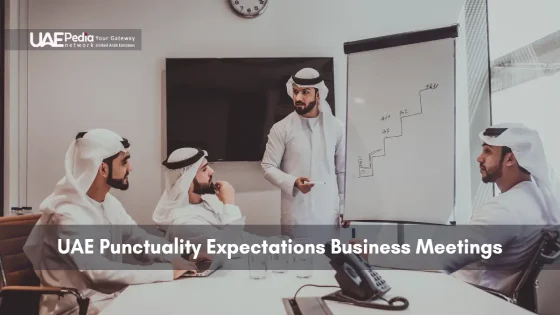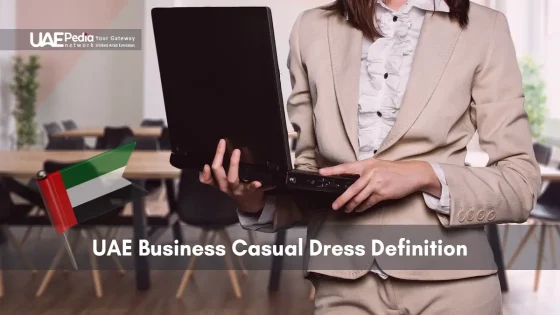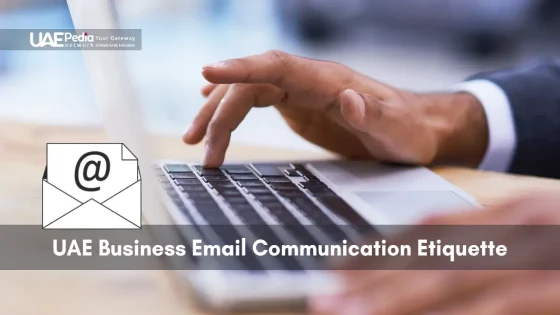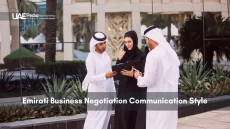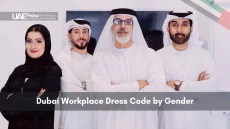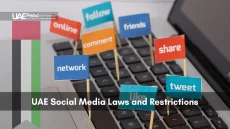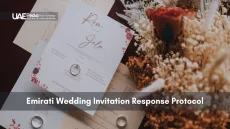Did you know 87% of professionals in the Emirates view arriving late as a sign of disrespect? This subtle yet powerful cultural norm shapes how local partnerships form. While the region’s workdays might seem fluid, timeliness carries weight far beyond mere logistics.
Here, showing up on schedule isn’t just about efficiency. It’s a gesture that bridges modern workflows and deep-rooted traditions. Think of it as a handshake without words—a way to honor your counterpart’s priorities before discussions even begin.
Guides on regional customs often highlight this balance. Flexible coffee chats coexist with meetings that start sharp at 10 AM. Preparation matters, too: polished shoes, crisp attire, and yes—those ever-important business cards exchanged with both hands. But nothing sets the tone faster than aligning your watch with local rhythms.
We’ve all navigated those first awkward minutes in a conference room. In this corner of the world, arriving early means arriving ready. It’s about blending the warmth of Arabian hospitality with the precision of global commerce. Ready to make every minute count?
Punctuality in UAE business meetings functions as a cultural compliance metric, with 87 % of professionals interpreting lateness as disrespect. Timely arrival aligns with deep-rooted norms that blend Arabian hospitality and global workflow requirements, reinforcing hierarchical acknowledgment through gestures such as presenting business cards with both hands and observing formal greeting protocols.
Practical adherence involves synchronizing to Gulf Standard Time, preparing materials in advance to prevent delays, and allocating buffer time for small-talk rituals that build trust. Consistent on-time performance enhances decision-making efficiency and signals commitment, directly impacting partnership formation and negotiation outcomes.
- Punctuality signals respect and professionalism, even in flexible schedules.
- Cultural guides emphasize balancing efficiency with relationship-building traditions.
- First impressions here blend modern business practices with time-honored gestures.
Understanding the UAE Business Culture and Its Emphasis on Punctuality
Ever notice how a simple gesture can speak louder than an agenda? In this corner of the Gulf, every interaction layers modern professionalism with unspoken codes. Let’s unpack what your right hand—and that coffee chat—really communicate.
The Silent Language of Respect
Greetings here follow an invisible script. Offering your right hand first isn’t just practical—it nods to centuries-old customs valuing cleanliness and honor. Elders receive acknowledgments before others, titles like “Mr.” or “Ms.” prefix names, and business cards pass between palms like cherished tokens.
Meetings often start with what outsiders might dismiss as small talk. Ask about family, health, or local events. These aren’t time-wasters—they’re trust-builders. One logistics manager shared how discussing a client’s daughter’s graduation unlocked stalled contract talks.
When Slow Burns Win Races
Decisions here rarely snap into place. Multiple consultations weave through teams, reflecting a hierarchy where senior voices weigh heavily. A tech startup founder learned this after presenting to junior staff: “I didn’t realize the real decision-making process happened two floors up,” she laughed later.
This dance between warmth and formality defines success. Arrive early, but don’t rush the mint tea. Dress sharply, yet let your right hand lead introductions. Because here, every meeting is part negotiation, part cultural handshake—and all about reading between the lines.
Read More:
Exploring UAE Punctuality Expectations Business Meetings
Imagine walking into a room where everyone’s eyes flick to the clock as you apologize for being “just five minutes late.” Here, those minutes aren’t lost—they’re borrowed trust. While some cultures treat schedules as flexible frameworks, the Emirates weaves timeliness into its social DNA.
What Punctuality Means in a Local Context
Arriving early isn’t about impatience—it’s a visual cue of commitment. A 2023 Gulf Business Council report found 68% of professionals view early arrivals as signaling preparedness. Contrast this with Western norms where “fashionably late” sometimes applies: one New York-based executive recalled his shock when Emirati partners rescheduled after his 10-minute delay.
Names matter here, too. Using someone’s full name during introductions shows you’ve done homework. As global etiquette trends shift toward casualness, this country holds firm—a LinkedIn survey revealed 73% of local hiring managers notice when titles get dropped.
How Minutes Shape Outcomes
Timing affects more than first impressions. Meetings starting precisely often finish with clearer action items. A tech startup founder shared: “When we honored our Abu Dhabi client’s 3 PM hard stop, they approved our proposal that afternoon.”
Gender norms add layers. Women often set interaction pace—waiting for them to extend hands or choose seats isn’t just polite, it’s strategic. One Dubai HR director noted: “How visitors handle these moments predicts long-term partnership potential.”
- Sync watches to local time zones—even if invites say “3 PM Gulf Standard”
- Prepare materials beforehand to avoid shuffling papers post-start-time
- Note senior attendees’ names and titles using company websites or LinkedIn
“In our region, your arrival time is your first slide presentation—make it count.”
Etiquette Tips for Effective Communication in UAE Business Settings
Ever wondered why a handshake here feels like a first chapter rather than a prologue? In this crossroads of tradition and modernity, every gesture layers meaning beneath its surface. Let’s decode the unspoken rules that turn introductions into invitations.
Formal Greetings and Addressing Hierarchies
Your hand speaks before you do. Offer it palm-up, right side first—a nod to cultural values around cleanliness and respect. Senior members enter conversations first, their titles (think “Sheikh” or “Dr.”) used like compass points guiding interactions.
Bilingual cards aren’t just practical—they’re bridges. Present yours with both hands, Arabic side facing up. One consultant shared how this simple flip earned nods from Dubai executives: “It showed I’d done my homework on local preferences.”
Managing Small Talk Before Business Discussions
That coffee ritual? It’s a trust-building marathon, not a sprint. Ask about family wellness or recent travels—topics that warm the room before agendas emerge. A logistics manager recalled bonding over falconry talk: “Twenty minutes later, we were drafting contracts.”
Gifts, when chosen thoughtfully, act as silent thank-yous. Opt for quality dates, artisanal sweets, or branded pens—never alcohol. Wrap them elegantly, but avoid ostentatious bows that might signal excess.
- Greet eldest attendees first, using full names and titles
- Keep language formal until counterparts suggest otherwise
- Note seating arrangements—higher-ranked people often take center positions
- Avoid humor that doesn’t translate cross-culturally
“Mispronouncing an Arabic name is forgivable—not trying isn’t.”
Navigating Business Cards and Gift Giving Protocols
Ever watched a master calligrapher craft an invitation? Each stroke balances precision with artistry—much like exchanging credentials here. These moments aren’t transactions; they’re rituals that cement relationships before a single word is spoken.
Proper Hand Usage and Bi-Lingual Cards
Your right palm becomes a bridge during introductions. Presenting cards this way nods to traditions valuing cleanliness and intentionality. One consultant shared how a Dubai CEO paused to adjust his grip: “That subtle shift turned a routine exchange into mutual respect.”
Bi-lingual cards matter, too. Arabic text facing up when offering yours shows cultural awareness. A tech founder recalled landing a contract after a client noticed his card’s flawless translation: “It signaled we’d work within local frameworks.”
- Gifts should whisper thoughtfulness—not shout price tags. Opt for premium dates or engraved pens
- Dress sharpens your message. Crisp suits or modest dresses align with professional codes
- Senior men often initiate exchanges. Wait for their cue before reaching into your portfolio
Remember, your company’s first impression isn’t just logos on paper. It’s how you handle these exchanges—like a perfectly steeped karak chai, balancing strength and sweetness.
“A well-presented card is a handshake in paper form.”
Building and Leveraging Professional Networks
Picture this: a bustling Dubai café where deals are sealed over cardamom-scented coffee rather than boardroom tables. Here, connections thrive in spaces where agendas fade and authenticity shines. While formal conferences have their place, the real magic often happens when ties deepen beyond PowerPoint slides.
Utilizing Social Events and Informal Meetings
In a society where relationships fuel progress, invitations to lunches or cultural festivals carry hidden potential. A 2023 Gulf networking study found 62% of professionals prioritize these gatherings for building trust. As one Abu Dhabi entrepreneur put it: “Our best partnerships started with shared plates of machboos, not spreadsheets.”
Casual settings let personalities emerge. Discuss art at an Abu Dhabi gallery opening or ask about family during a Sharjah souk stroll. These moments create bonds that formal meetings alone can’t replicate. One tech founder credited a desert safari chat for unlocking venture capital: “They needed to see I valued their world beyond office walls.”
- Research attendees beforehand—mention a recent achievement or shared interest
- Offer genuine compliments on local traditions or hospitality
- Follow up within 48 hours with personalized messages referencing your conversation
“Your network here isn’t a contact list—it’s a living ecosystem. Nurture it with care.”
Balance is key. While global standards favor LinkedIn efficiency, local norms reward patience. Attend a meeting of minds at a majlis gathering, but keep business cards handy. Respect hierarchies without stiff formality—senior figures often appreciate thoughtful questions about their legacy.
Ultimately, every smile exchanged over karak tea or gallery tour becomes a brick in your professional bridge. Build it with curiosity, and watch opportunities cross.
Strategies for Meetings, Negotiations, and Decision-Making
Ever tried sipping karak tea while navigating a maze of unspoken cues? Here, progress often flows like sand through an hourglass—steady but deliberate. Mastering this rhythm requires blending strategic silence with cultural intuition.
Patience and the Indirect Communication Style
Direct answers can feel abrupt here. Instead, listen for phrases like “we’ll look into it” or “perhaps another time”—polite deflections signaling reservations. A Dubai tech firm once secured a deal by letting counterparts revisit terms across three talks, allowing gradual alignment without pressure.
Body language speaks volumes. Leaning back during negotiations might mean discomfort, while frequent tea refills often signal engagement. One logistics manager noticed a client’s repeated clock-glances and adjusted her pitch—trimming details to respect their unspoken deadline.
Adapting to Extended Negotiation Processes
Deals here rarely sprint. A 2023 Gulf Commerce report found 74% of agreements required four or more rounds. This process tests resolve but builds trust. “Our biggest contract emerged after nine months of talks,” shared an Abu Dhabi fintech founder. “Each meeting layered new understanding.”
- Track the number of follow-ups—three is often the minimum for serious discussions
- Use phrases like “your perspective matters” to acknowledge hierarchies without direct challenges
- Note pauses after proposals—silence often precedes counteroffers
“Rushing here is like pouring coffee before the pot’s ready—you’ll miss the richness.”
Understanding UAE Work Hours and Flexibility in Practice
What if your calendar could bend like a palm frond in the desert wind? Across offices here, the rhythm shifts between steady routines and seasonal adaptations. Sunday to Thursday follows a familiar 9-to-5 beat—but when Ramadan’s crescent moon rises, schedules soften like twilight shadows.
Clocks and Cultural Currents
Standard hours anchor productivity, yet flexibility blooms during sacred months. Workdays shorten by two hours in Ramadan, but punctuality remains non-negotiable. One logistics manager shared: “We adjust items like meeting lengths, not start times—respect flows both ways.”
Annual leave policies reflect growing emphasis on balance. Employees enjoy 30+ days for holidays, plus maternity leave exceeding global averages. Remote work options now stretch across sectors—a tech founder described her team’s hybrid model: “Dubai skyscrapers and home offices sync seamlessly.”
- Ramadan adjustments prioritize family and reflection without sacrificing professionalism
- New labor laws introduce part-time roles and four-day trials in some sectors
- Plan trips around major holidays like Eid, when offices pause for week-long celebrations
“Flexibility here isn’t about loose boundaries—it’s smart adaptation to life’s seasons.”
Even social norms influence timing. Avoid scheduling critical items near prayer hours or offering alcohol during iftar gatherings. As work cultures evolve, the arms of tradition and progress stretch wider—ready to embrace those who sync with their tempo.
Cultural Nuances: Dress Codes, Hierarchies, and Social Etiquette
What if your wardrobe held secret keys to professional trust? In the United Arab Emirates, clothing choices whisper volumes about cultural awareness. While global brands thrive here, local norms favor modesty and precision—think tailored suits over casual Fridays, closed-toe shoes instead of sandals.
Best Practices for Business Attire
Lightweight fabrics rule in this sun-drenched region, but coverage matters. Men’s collared shirts stay tucked, while women’s hemlines hover near knees. A Dubai HR director once shared: “We’ve redirected clients to nearby malls for blazers—it’s that non-negotiable.”
| Event Type | Recommended Attire | Avoid |
|---|---|---|
| Corporate Meetings | Dark suits, minimal jewelry | Visible tattoos |
| Social Events | Elegant abayas/kanduras | Sheer fabrics |
| Formal Galas | Embellished thobes/evening gowns | Excessive perfume |
Notice how traditional garments influence expectations. Expatriates aren’t required to wear local dress, but mirroring its formality builds bridges. Gold cufflinks? Perfect. Flashy watches? Save them for after hours.
Respecting Seniority and Cultural Norms
Hierarchy flows through offices like Arabic coffee—rich and layered. Greet the most senior person first, using honorifics like “Sheikh” or “Dr.” One tech founder learned this when a CEO paused negotiations until proper acknowledgments were made.
- Defer to elders in seating arrangements and conversation order
- Present documents with both hands during high-level reviews
- Moderate laughter volume in formal settings
“Dress like you’re meeting royalty—because someday, you might.”
Final Reflections on UAE Business Meeting Practices
Time bends differently here—not just in desert mirages but in conference rooms where heritage and innovation share the agenda. Respecting schedules remains foundational, yet success blooms when you pair clocks with cultural compasses.
The united arab approach weaves centuries-old hospitality into today’s global workflows. Handshakes become handshares, negotiations turn into collaborations, and silence speaks as clearly as spreadsheets. Those who thrive here master this duality—honoring tradition while navigating progress.
Consider business etiquette your passport. Simple gestures—presenting cards properly, mirroring dress codes—build trust faster than any pitch deck. In the middle east, relationships outlast transactions. One tech leader shared how learning Arabic greetings led to a decade-long partnership: “It showed respect for our shared culture uae values.”
Your roadmap? Blend curiosity with preparation. Study local norms like the etiquette uae pros do, but leave room for organic connections. Whether sealing deals in Dubai or networking in Abu Dhabi, remember: every interaction plants seeds for future growth.
Walk this path well, and you’ll find more than contracts—you’ll gain allies who value both your timeliness and your willingness to sip one more coffee. Ready to write your own success story?
Arriving even 10 minutes late can signal disrespect for others’ time. Punctuality reflects your commitment to building trust – a cornerstone of UAE business relationships. Locals often arrive early; follow their lead to show you value the partnership.
Absolutely! Offer cards with Arabic on one side and English on the reverse using your right hand. This small gesture honors local language traditions and demonstrates cultural awareness – a quick win for first impressions.
Ask about family wellness, praise the UAE’s growth, or discuss light topics like cuisine. Avoid politics or personal finances. Emiratis value relationship-building – let them guide when to shift gears to work matters.
Expect shorter days (often 9 AM–2 PM) and flexibility around iftar. Propose morning meetings, avoid lunch hours, and never eat/drink publicly during fasting times. Confirm dates via Hijri/Gregorian converters – Ramadan shifts yearly!
Consensus-building across hierarchies and indirect communication styles extend timelines. Rushing decisions can offend. Instead, ask “What’s the next step?” and follow up politely. Patience isn’t just a virtue here – it’s strategy.
Stick with suits or kanduras for formal meetings. In tech hubs like DIFC, smart casual may work – but err on the side of modesty. Women should opt for knee-length skirts and covered shoulders. When in doubt, overdress.
Light, universal humor works if it’s self-deprecating. Avoid sarcasm or jokes about local customs. Watch body language – if your Emirati counterpart stays reserved, match their tone. Warm professionalism always wins.
